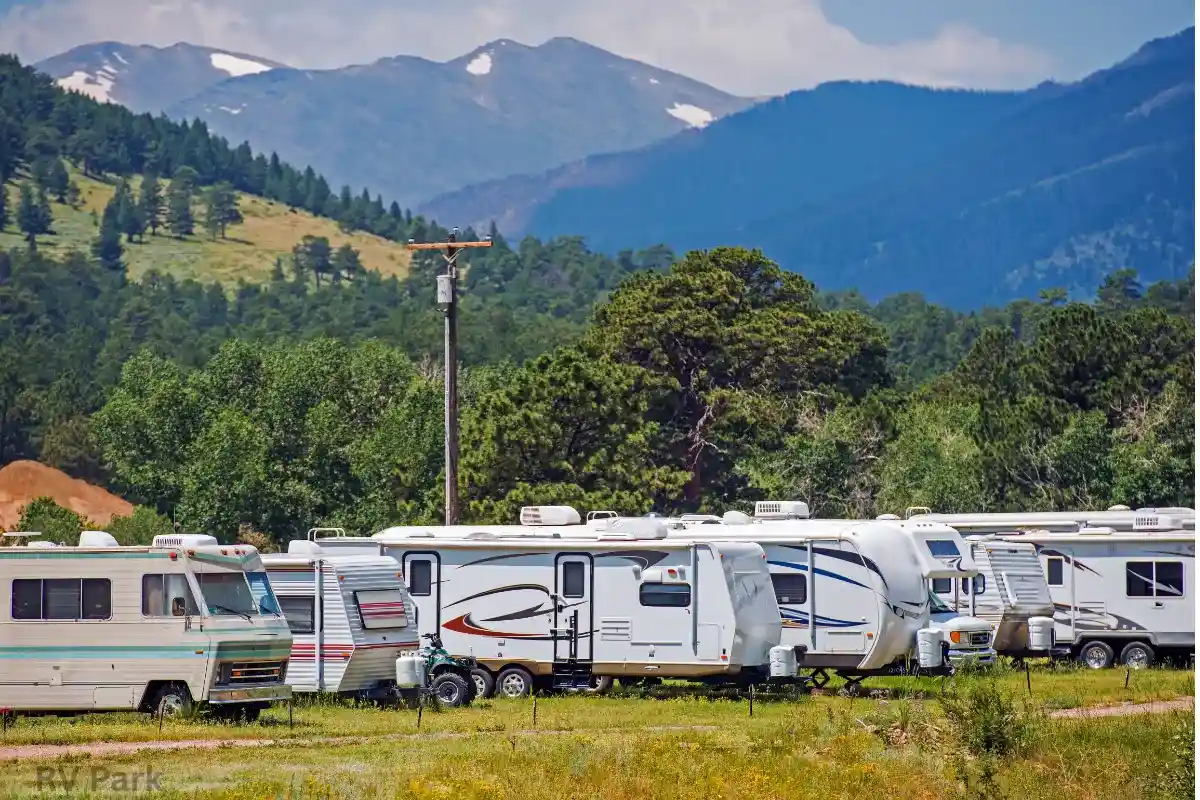
Planning your RV setup? Learn the costs and get ready to upgrade your site—start your installation journey today!
Adding RV hookups makes your park more comfortable for guests and more attractive to travelers. Most RV travelers prefer parks that offer power, water, and sewer connections for a comfortable stay. At RV Park in Midland, TX, we know how much these features matter. The rv hookup installation cost depends on the type of site you want to build. Costs change depending on the site’s location, design, and how close the necessary utilities are.
This guide explains everything from setup options to budgeting tips. This guide will cover electrical, water, and sewer hookups, along with the necessary permits for installation. We’ll also cover common expenses and ways to plan your project wisely.
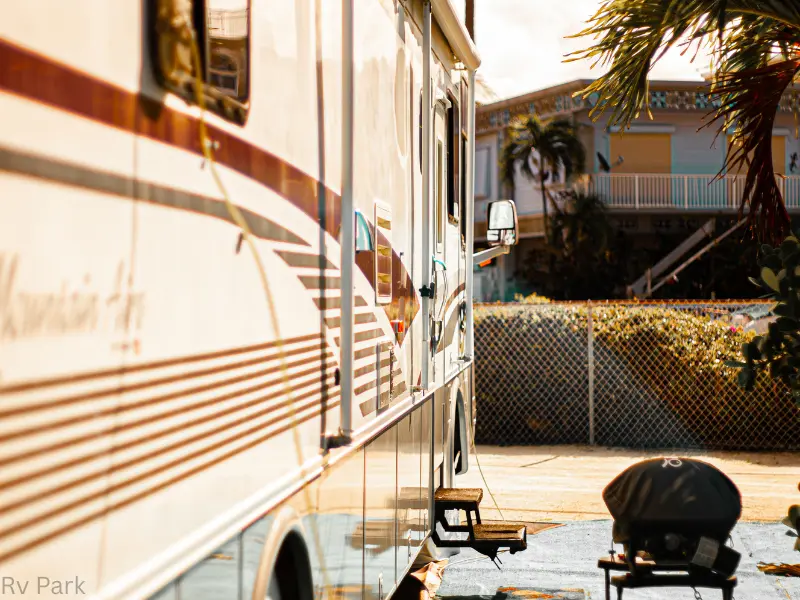
A full hookup gives guests all the utilities they need for a comfortable stay. A full RV hookup setup provides electrical power, water access, and a sewer system to manage waste effectively.
Each feature helps guests enjoy their stay without worrying about basic needs. You can read more in our guide on what does full hook up mean at an RV Park. Providing these services can make your park more appealing and more competitive. Full hookups also allow for longer stays, which can increase your site’s income.

Installing RV hookups can cost differently at each site. The condition of the land is often one of the main factors. Uneven ground or rocky soil can make installation harder and more expensive. Square foot measurements also matter because bigger sites need more materials. A pull-through site may require longer utility lines, increasing labor and supply costs.
A solid parking pad is important for stability and safety. Concrete or gravel pads can also make the site look more inviting. The location’s proximity to water source and power lines affects the rv hookups cost. Shorter distances mean lower installation expenses, while longer runs cost more.
Upgrades to common areas can also add indirect costs. Upgrades like better road access or added landscaping to reach new hookups can raise costs. Each factor can influence your final investment. Planning ahead helps control expenses while still creating a comfortable, fully equipped RV site.
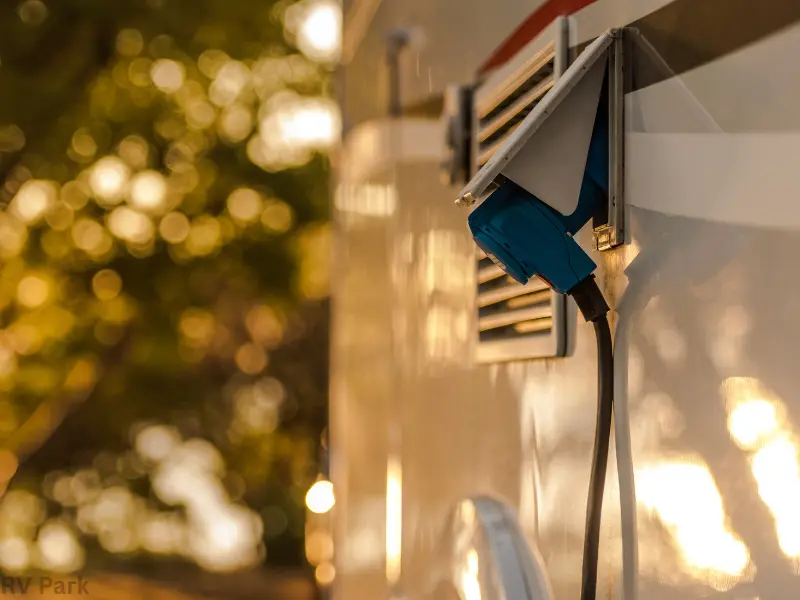
An RV electrical hookup provides safe and reliable power for your guests’ needs. Many RV parks provide guests with either a 30 amp hookup or a 50 amp hookup option. Installing a 30 amp hookup is usually less expensive and suits smaller RV models. The 50 amp option can handle bigger appliances and higher power demand. It usually costs more because it requires heavier wiring and larger breakers.
Proper electrical hookups also need safe installation practices. Using quality materials, such as pipe clamps, helps secure cables and reduce hazards. Meeting local electrical codes is important for safety and insurance compliance. This includes proper grounding, breaker sizing, and weatherproof outlets.
The RV power hookup must match the site’s expected load to avoid overloads. Good planning ensures guests have dependable service without risking damage to equipment. Investing in quality installation pays off with fewer repairs and happier customers.

An RV water hookup supplies every site with access to a safe and dependable water supply. The process begins by setting up a reliable water line to serve each site. Your overall cost can change based on the water source’s quality and how far it is. Extended distances need additional piping, fittings, and extra labor to complete the installation.
Using sturdy materials, such as pipe clamps, helps secure connections and prevent leaks. Pressure regulation is also important to protect RV plumbing systems from damage. A pressure regulator keeps the flow safe and consistent for all guests.
Greater distance from the water source to the site often raises installation expenses. Trenching, extra piping, and fittings can quickly add to your budget. Planning the shortest route possible can help save money.
Well-installed water hookups give guests easy access to fresh water during their stay. This simple comfort can make your RV park more appealing and guest-friendly.
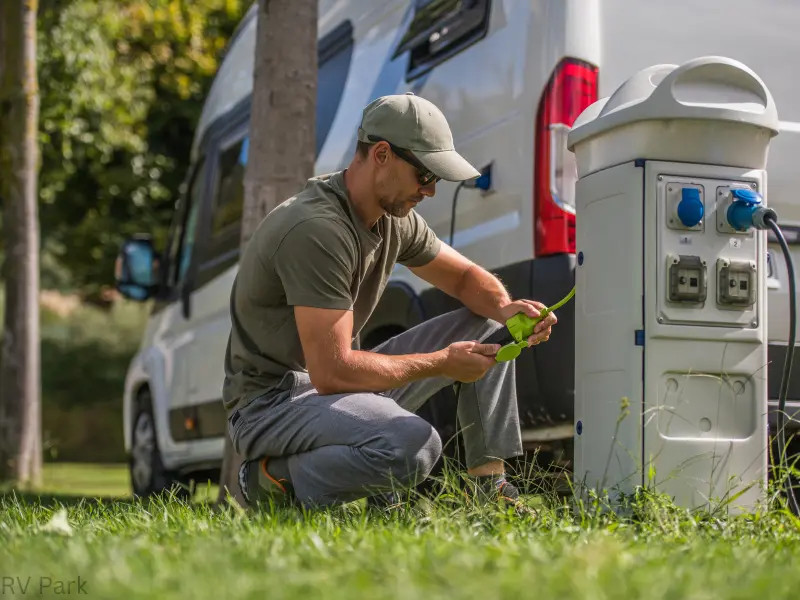
A properly planned sewer system helps ensure guest comfort and upholds important hygiene standards. Many parks install an on-site septic system with a septic tank and sewer connection. This option works well in areas without city sewer service.
Connecting to a city sewer is often simpler but may require permits and fees. It can also cost more if the line is far from the site. An on-site septic tank involves digging, installing pipes, and setting up drainage fields.
Material costs include durable piping, fittings, and seals to prevent leaks. Labor costs change based on soil type, layout of the site, and how deep trenches need to be dug. Uneven or rocky terrain often increases both the time and cost of completing the work.
A well-planned sewer hookup ensures waste is managed safely and efficiently. Guests can enjoy longer stays without worrying about disposal issues.

.
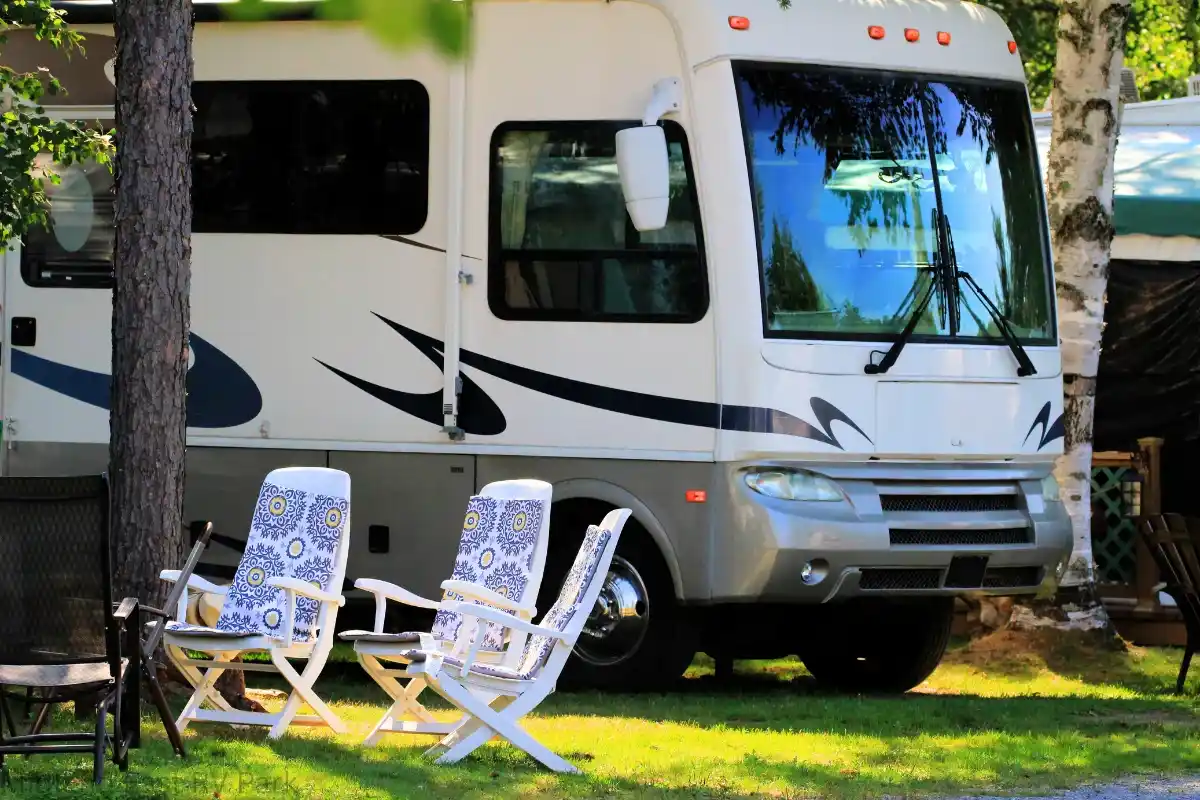
Before installing RV hookups, most areas require specific permits. These can include electrical, plumbing, and excavation approvals from local authorities. Adhering to state and local regulations ensures the project stays on track and avoids unnecessary penalties.
Some projects need environmental checks to protect nearby water sources and wildlife. This step ensures the installation meets safety and conservation standards. Inspection fees may also apply before and after the work is completed.
Each city or county can have different rules and timelines. Knowing these requirements early can help you plan your budget more accurately. This helps keep the entire project on track and free from unnecessary delays.

.
The rv hookup installation cost for upgrades depends on the type of work needed. Replacing electrical hookups may involve new wiring, outlets, or breaker upgrades. Switching from 30 amp to 50 amp service can also raise costs.
Upgrading a water line could mean installing new pipes or improving water pressure systems. This ensures guests have a reliable supply during their stay. A new sewer connection might be required if the old system is damaged or outdated.
Labor rates, materials, and site access all affect the final price. Planning upgrades in stages can help manage costs more easily. Well-made upgrades help hookups last longer and make guests happier with their stay.
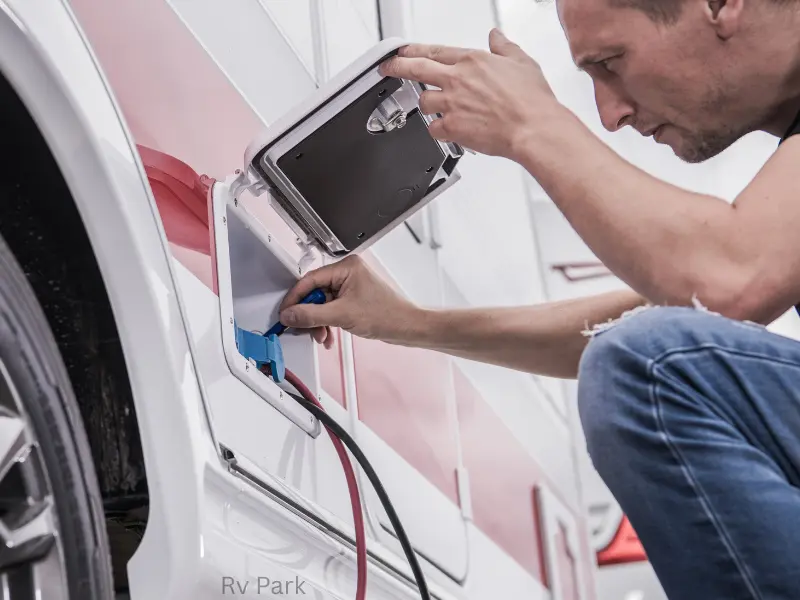
Budget ahead for RV electrical hookups, water connections, and sewer lines during planning. Each has its own costs depending on site size and layout. Site conditions play a big role in the final budget.
A pull-through site may require longer utility runs, which can raise expenses. Check the lengths needed for power, water, and sewer lines to calculate labor and material needs. Get quotes from licensed contractors who understand RV park requirements.
Find ways to reduce expenses while still keeping safety as the top priority. Using quality materials reduces future repairs and keeps guests happy. Consider grouping sites during installation to save on labor and equipment fees.
Planning carefully helps avoid surprises and keeps your project on track. A clear budget ensures your investment delivers long-term value.

.
Costs depend on site conditions, distance to utilities, hookup type, and labor rates. Materials and permit fees also affect pricing.
Most areas require electrical, plumbing, and excavation permits. Some locations also need environmental clearance before starting work.
Upgrades vary. Replacing electrical hookups, water lines, or sewer connections can range from a few hundred to several thousand dollars.
Budget between $1,000 and $3,000 per site. Costs change based on amperage, distance to power lines, and installation complexity.
Expect $500 to $2,500 per site. Distance from the water source and materials used will affect the final amount.
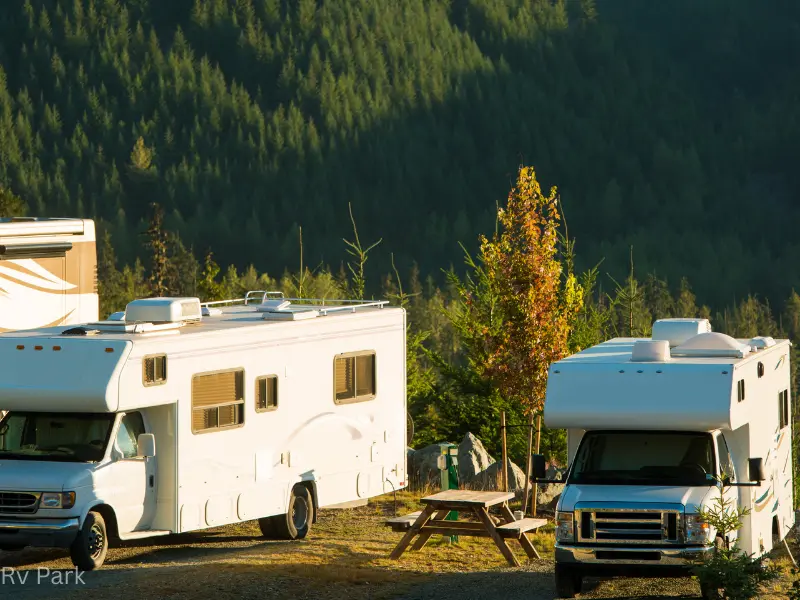
Installing RV hookups boosts comfort, convenience, and guest satisfaction. It makes your park more attractive to travelers looking for full-service sites. Having dependable power, water, and sewer services inspires guests to stay longer and return again.
Providing quality amenities and a welcoming environment enhances the overall RV experience. The goal is to create a comfortable, enjoyable stay for all guests.
If you're planning your next RV trip, this guide gives you all the information you need about installing RV hookups. For more details, feel free to reach out and explore your options.





















